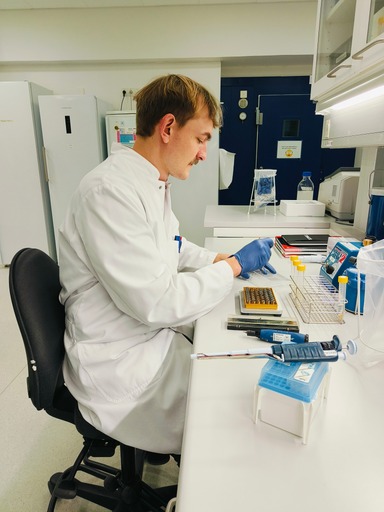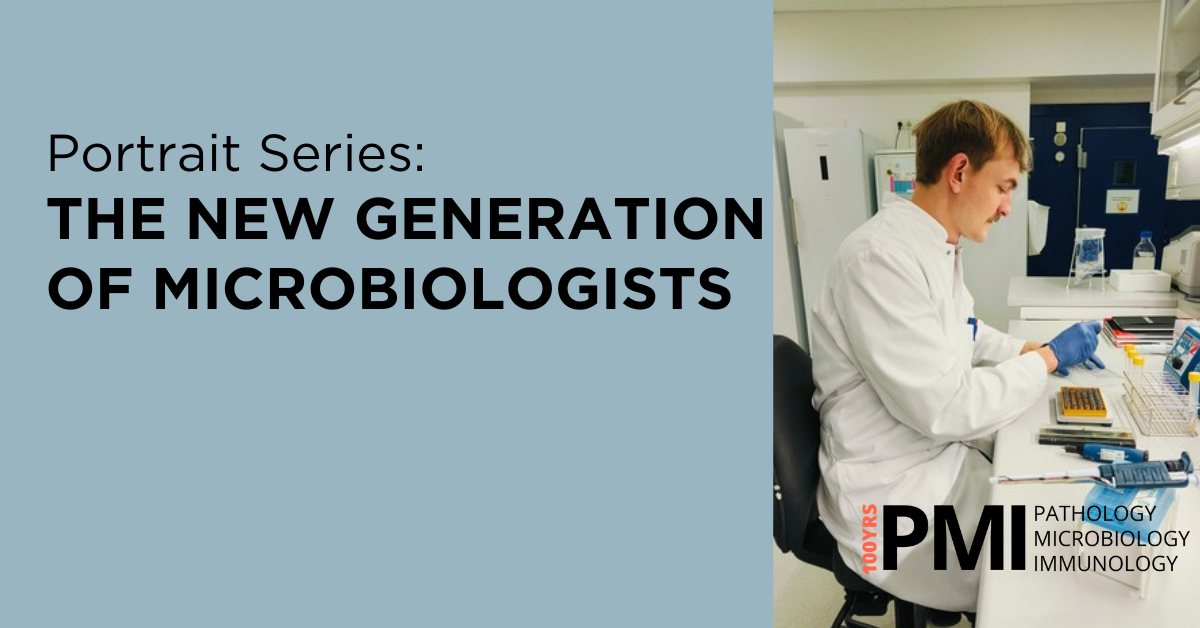Mads Holm Christensen is a danish PhD student in microbiology from University of Copenhagen, Department of Clinical Microbiology and Copenhagen University Hospital. Christensen´s research field is on infection microbiology with his latest PMI publication on Antimicrobial susceptibility testing of bone and joint pathogens using isothermal microcalorimetry. Christensen shared in an interview what his research is about, his inspiration and motivation in choice of education.
Latest PMI article
What is your (latest) PMI article about in layman’s terms?
Our latest study investigates the role of isothermal microcalorimetry in diagnostics and antibiotic susceptibility testing for bone infections. This technology measures the heat from bacterial metabolic activity and offers a more sensitive, faster alternative to diagnosing bone infections using agar plates. Our findings indicate that bacteria from clinical infections can be detected within a few hours, and most undergo susceptibility testing within 10 hours. This innovative approach has the potential to significantly accelerate the diagnostic process, enabling earlier and more targeted treatment.
Choice of field
Why did you become a researcher?
Prior to my bachelor’s project, I was an exchange student at the University of Washington in Seattle. Here I had the opportunity to follow various courses, including basic microbiological methods in the laboratory and public health courses focused on infectious diseases and their societal impact. This link between public health and basic research sparked my interest, and upon returning to Denmark, I immediately applied for a master’s program in microbiology. I quickly realized that bacteria are far more adept at adapting than we are, highlighting the critical need for further research in infectious microbiology to stay ahead in the arms race against antibiotic resistance. Furthermore, during my bachelor’s and masters’ projects, I was fortunate to have inspiring supervisors who further ignited my interest in microbiological research.
Academic inspiration
Who inspires you academically?
Researchers who have revolutionized entire fields of research, like Sir Alexander Fleming, have been a source of inspiration for me. On a daily basis, I am most inspired by my fellow PhD students and supervisors. In the past, I have been most inspired by my bachelor’s and master’s supervisors Mads Lichtenberg, Lasse Andersson Kvich, and Lene Bay.
Current research inspiration
What research are you reading right now for inspiration?
I am currently following the research of Kyle Cichos, as our fields are very similar. Like me he is working with isothermal microcalorimetry for diagnostic purposes. I believe it is extremely important for multiple independent researchers to contribute to the same field to create a broader and more significant impact.
Scientific aspirations
What are your scientific aspirations?
I hope to contribute significantly to the fight against antimicrobial resistance and to be part of the global team of researchers addressing the severe consequences of resistance on an international scale. Whether it involves osteomyelitis, meningitis, chronic wound infections, or urinary tract infections, antibiotic stewardship is critically important for the future of collective healthcare.
PMI
Why did you choose PMI?
I chose PMI because it is a multidisciplinary journal that covers the three major fields of infection biology: pathology, microbiology, and immunology. While my primary focus is on the microbiological aspects of infections, I believe it is crucial to consider research within the context of all three fields and their interconnections. With its broader scope compared to niche journals, research published in PMI has the potential to reach a wider audience and inspire researchers to explore new ideas they might not have encountered elsewhere.



